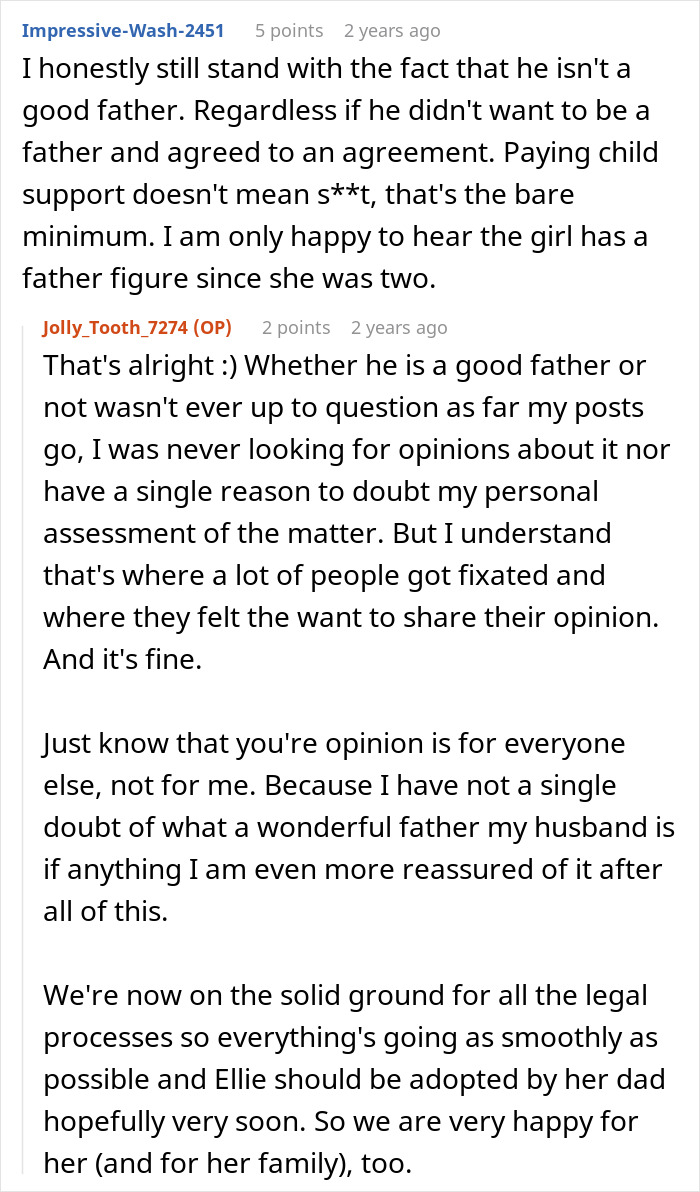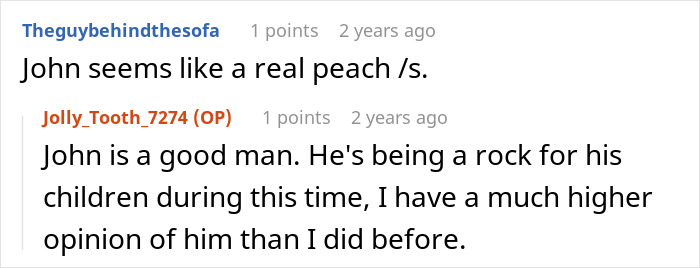We all have a clear image in our heads of what a “traditional” family looks like. But many children don’t have the privilege of living in a two-parent household. Even when single parents, foster parents or stepparents do their best to fill the role of absent caregiver, it can still have an immense impact on children.
Redditor Jolly_Tooth_7274’s husband made a conscious decision to completely cut ties with his biological daughter before meeting her. The current wife is aware of the whole situation, and he supports the child financially. But he has never seen her, nor does he plan to. Now the couple has a son together, and she believes that her husband’s past doesn’t interfere with him being a good father, which some of their friends found to be absurd.
Scroll down to find the full story and a conversation with certified advanced Imago relationship therapist Trish Sanders, LCSW and Kenny Levine, LCSW, licensed therapist and coach, who kindly agreed to tell us more about parental absence.
Not all kids have the privilege to live in a two-parent household
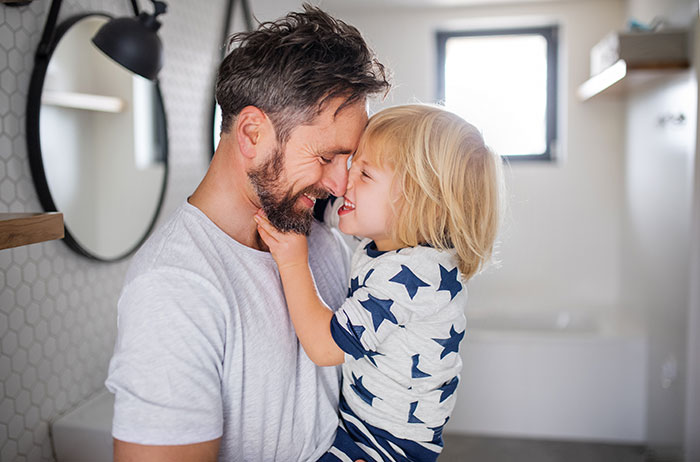
Image credits: halfpoint / Envato (not the actual photo)
Despite her husband disowning his biological daughter, this wife still thinks he is a good father

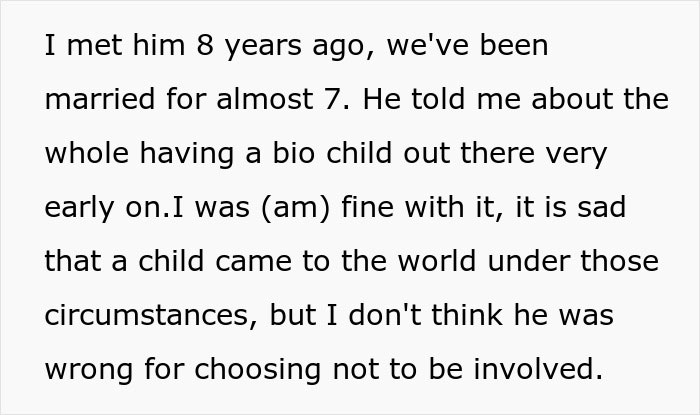
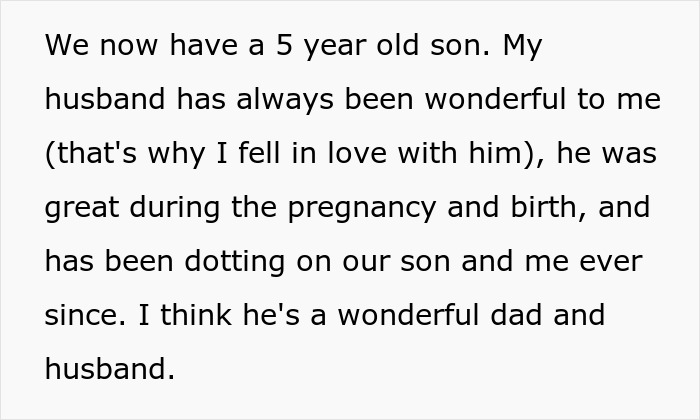
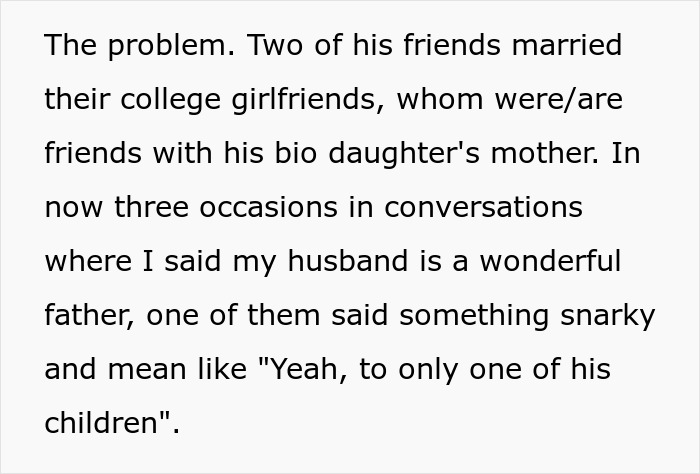
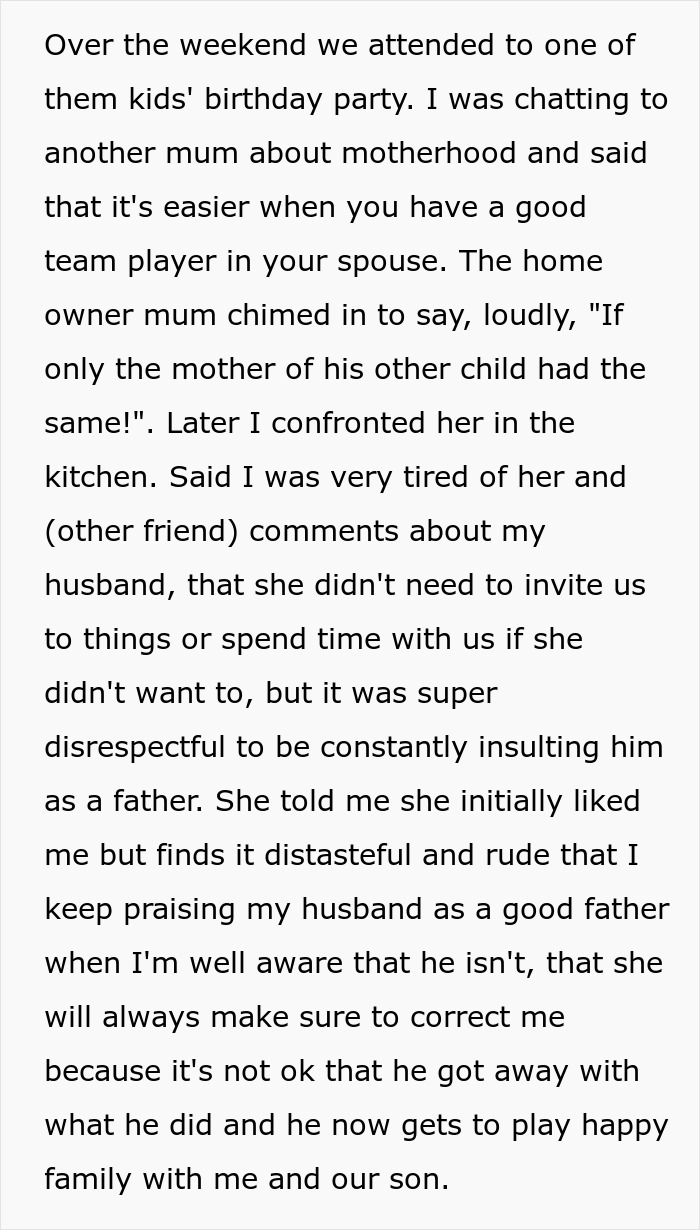

Image credits: LightFieldStudios / Envato (not the actual photo)
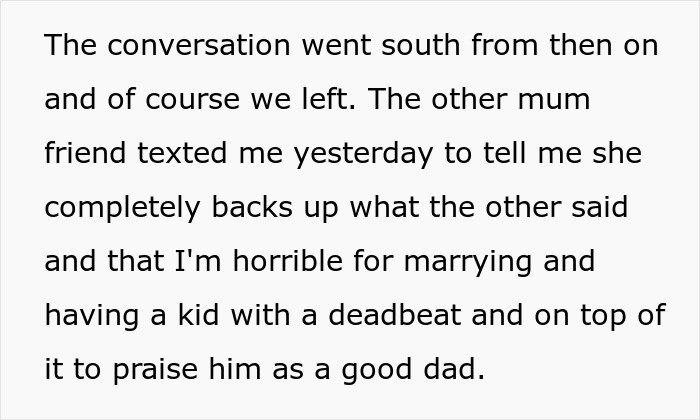
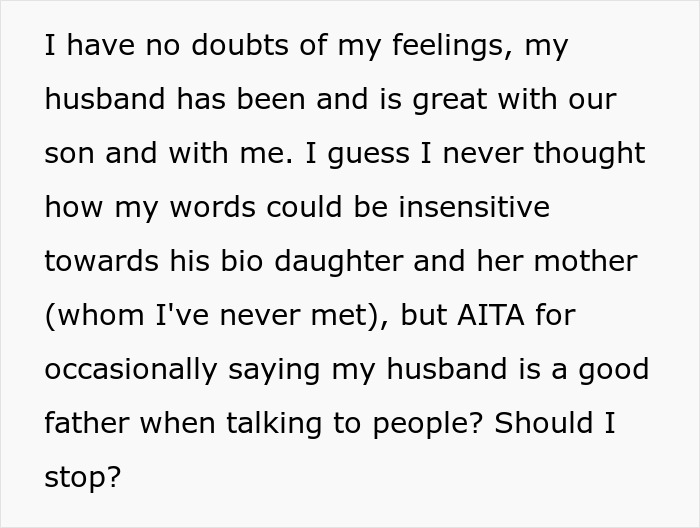
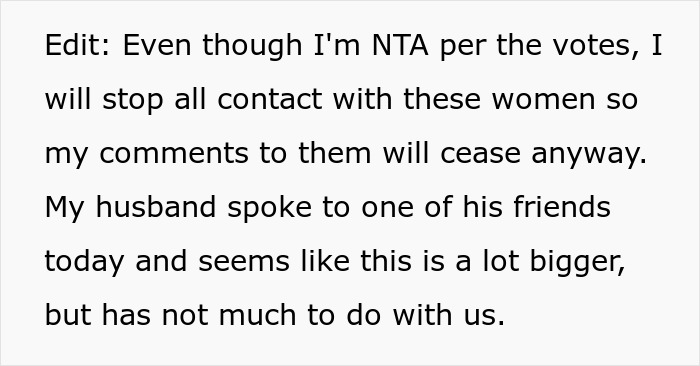
Image credits: Jolly_Tooth_7274
25% of kids live without a biological, step, or adoptive father

Image credits: prostooleh / Freepik (not the actual photo)
As a society, we have a very strong (almost godlike, as psychologist Lucy Blake puts it) expectation for parents to be unconditionally loving, cherishing, and caring for their children without exception. However, in reality, this isn’t always true, especially for fathers. According to the U.S. Census Bureau, 25% of kids live without a biological, step, or adoptive father.
Parental absence can occur due to various reasons like mental illness, divorce, incarceration, distance, or death. Parents who cut ties with their children later in life might choose to do it because of family conflict, differences in personal values, substance abuse, and other toxic behavior. Particularly with sons, a breakdown in relationships is often linked to divorce, in-laws, and marriage. Meanwhile, with daughters, mental health and emotional abuse were the most common causes.
Certified advanced Imago relationship therapist Trish Sanders, LCSW, tells Bored Panda, “In extremely rare cases, it may make sense for a parent to leave their biological child in the care of another trusted adult. It may be hard for many parents to imagine, but in cases in which a parent fears they may harm themselves or their child, giving a child up in the name of safety may be a viable option.”
Children who don’t know their biological fathers are at heightened risk of experiencing poverty, teenage pregnancy, obesity, or substance abuse. “Abandonment by a parent can profoundly impact a child’s sense of self-worth, often leading to feelings of rejection, insecurity, and challenges in forming trusting relationships later in life,” adds Kenny Levine, LCSW, licensed therapist and coach.
“Children will likely question why they were abandoned and, often, will place the blame on themselves. Children may internalize feelings of being unlovable, unwanted or not good enough. This can lead to a variety of symptoms, including depression,” notes Sanders.
Therefore, having a supportive male figure even if there’s no biological connection can be beneficial. However, it’s important to note that even though people in our lives greatly impact how we feel, they don’t have a complete hold on them or our future. Some things may be more challenging for children without dads, but there are various ways to successfully overcome the effects of parental absence.
Making such a decision isn’t an easy choice for parents
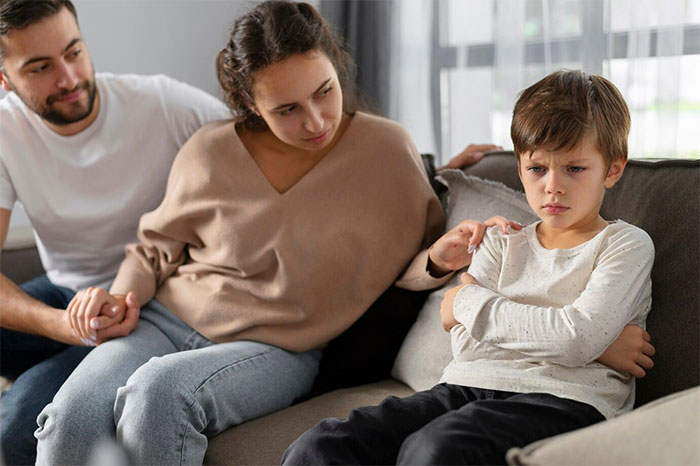
Image credits: Image by Freepik (not the actual photo)
On the other hand, making such a decision isn’t an easy choice for parents either. It can be extremely difficult, painful, and isolating. “It must be understood that the decision to abandon one’s child can be gut wrenching and is usually not made lightly. Parents who were in a situation in which they felt they had to give up their child may carry the burden of that choice with them for the rest of their lives. Parents may struggle with guilt, unworthiness or depression themselves. In either case, a sense of lack, conscious or not, may be pervasive and show up in their lives and in other relationships they have.”
Many parents don’t have the support they need making them feel like leaving their baby is the only option. “It would serve us as a society to be curious about the circumstances that lead to a parent having to make that kind of life altering decision. I would encourage us to look at means of supporting parents in situations such as this, rather than shunning or judging them,” says Sanders. “It is also important to note that in our current nation, many women do not have proper access to reproductive health services, which can lead to more unintended pregnancies. This also creates a major social issue for parents who may not want to give up their child, but may also not be in a position to care for them.”
“How the children and parent can best heal from a history of abandonment will depend on the children’s age, the circumstances surrounding the abandonment, and other contributing factors,” says Levine. “Healing from parental abandonment requires open communication, therapy, and a commitment from both the parent and children to rebuild trust, process feelings of loss, and create a new, healthier foundation for their relationship.”
When a recovered relationship isn’t in the cards for them Sanders suggests creating healthy bonds with other people. “Though there will be challenges along the way, a parent and child can develop the relational and communication skills needed to create relationships in their lives in which they feel validated, good enough and valued. This may require professional support, such as therapy, but through this process, some level of healing old abandonment wounds is possible,” she concludes.
The author provided more details about the situation in the comments

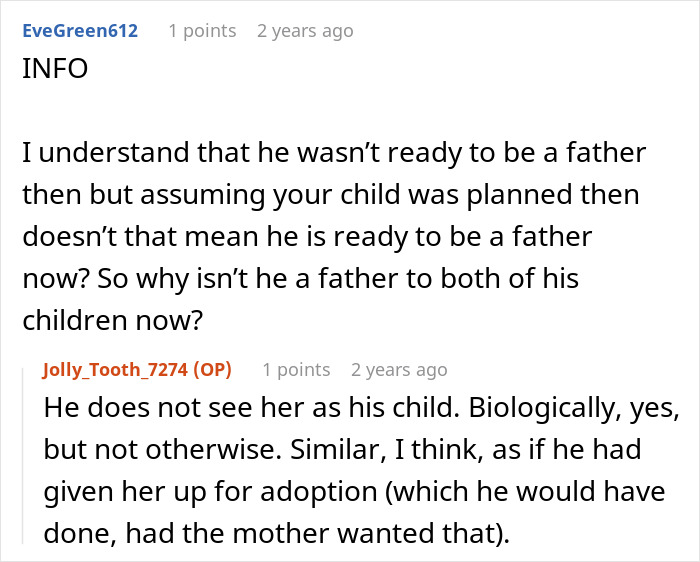
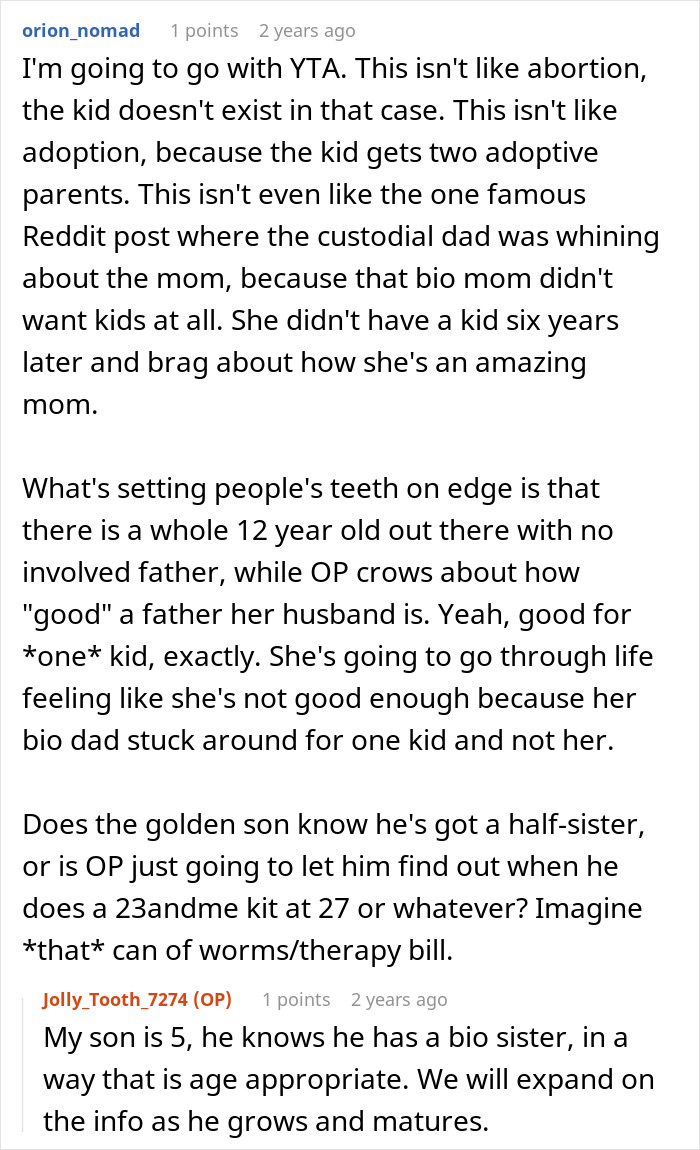

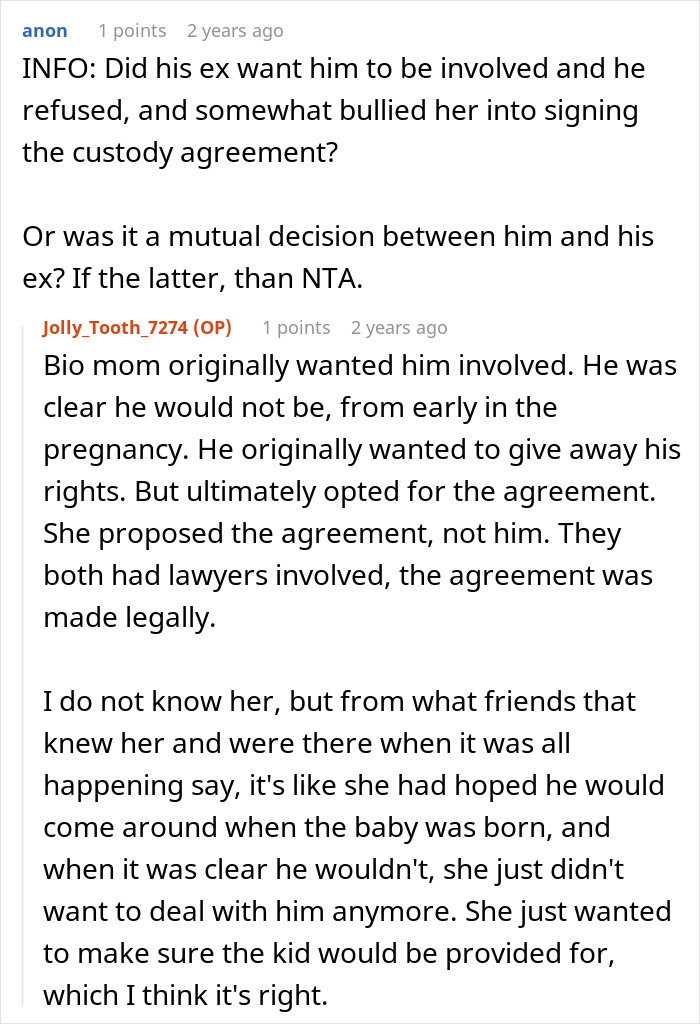
Some readers supported the wife



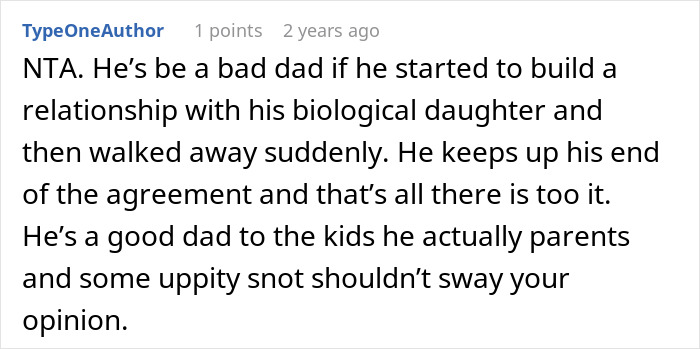
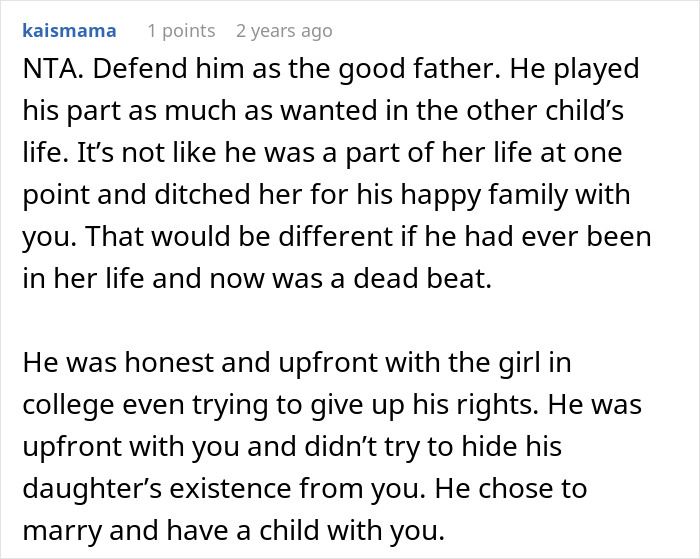
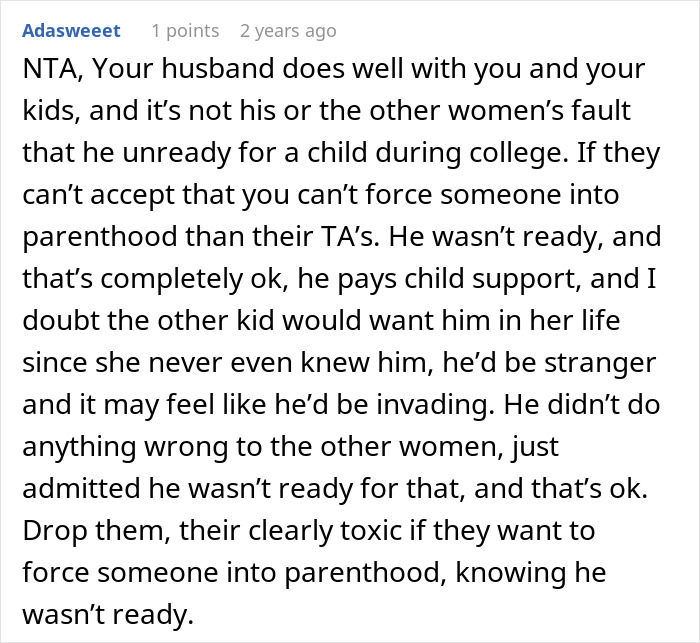
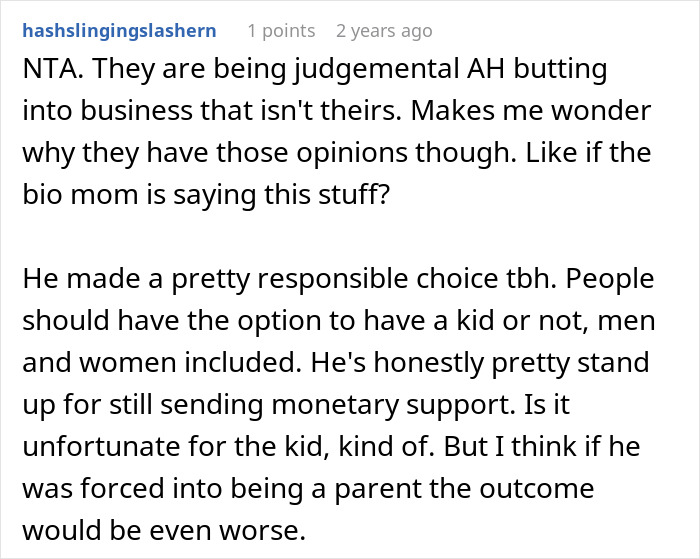
While others didn’t think her husband was a good father
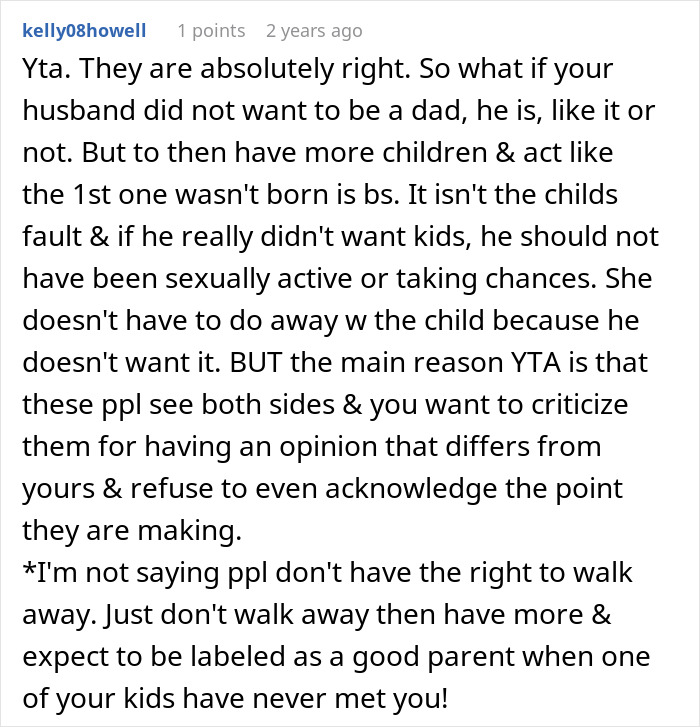
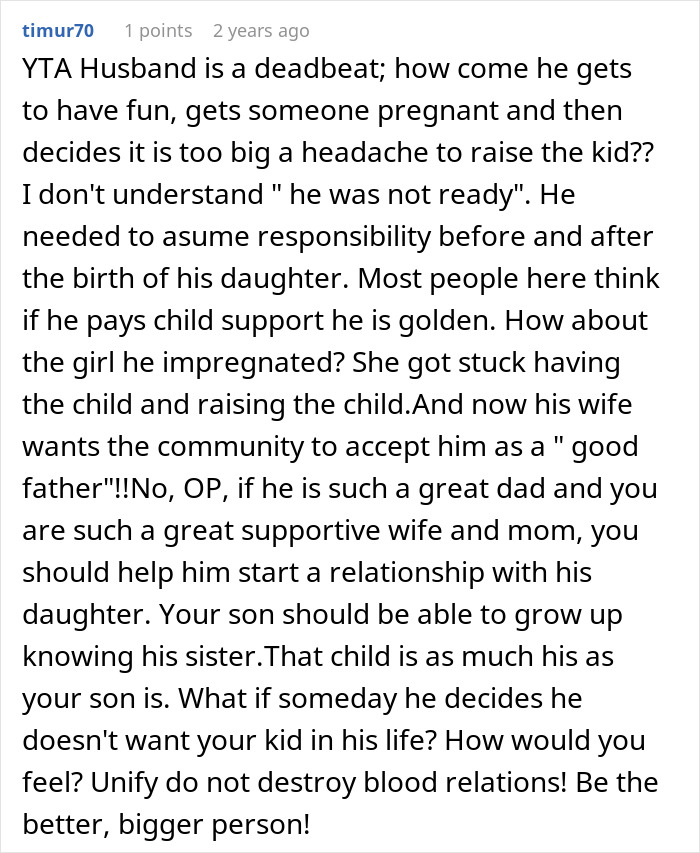
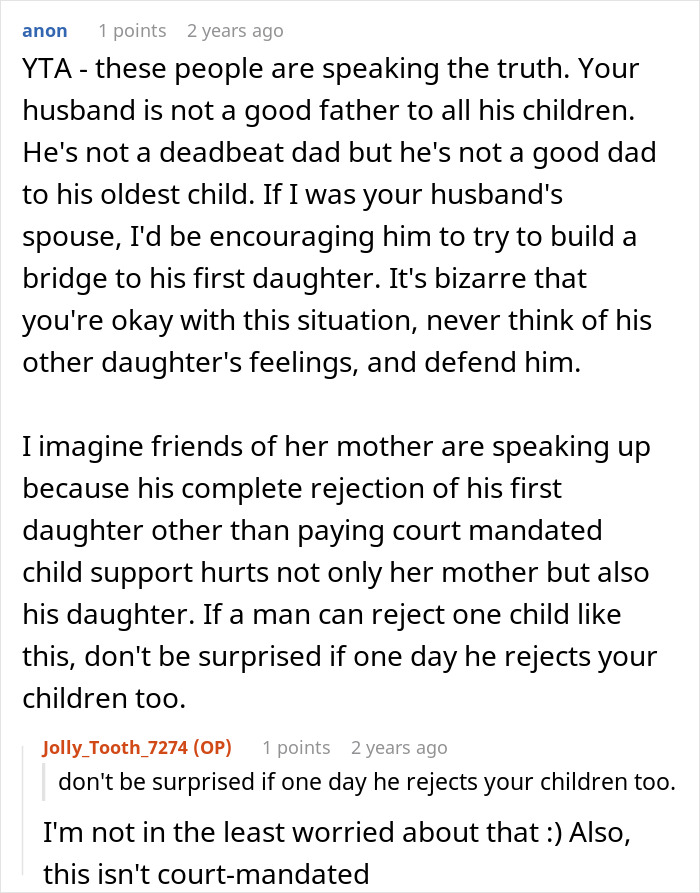
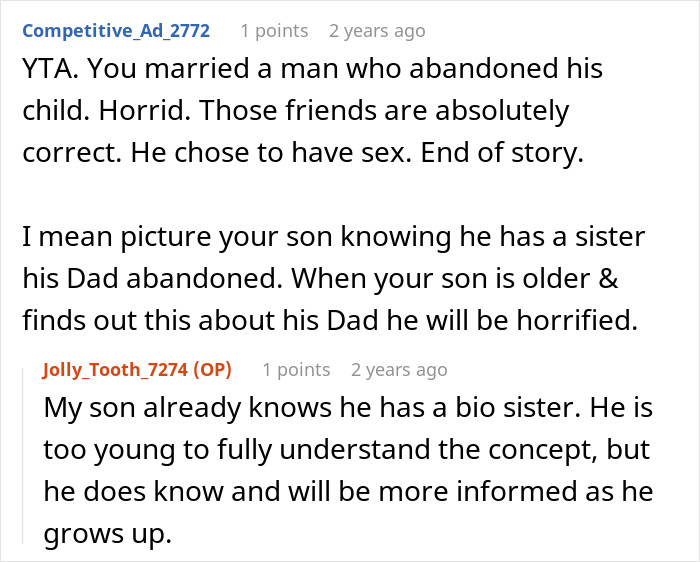
After some time, the author posted an update
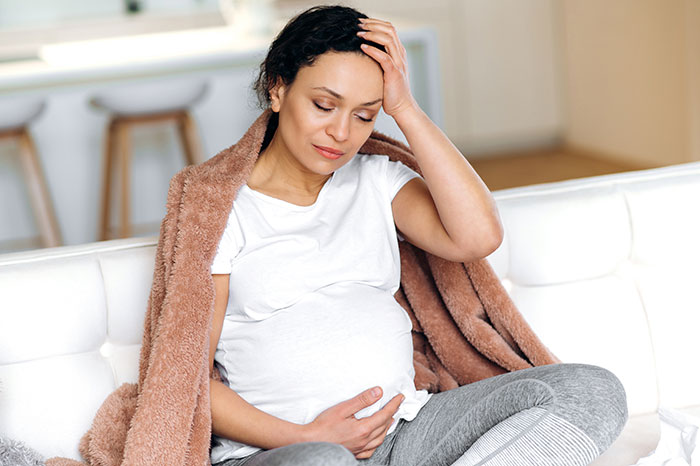
Image credits: thelivephotos / Envato (not the actual photo)

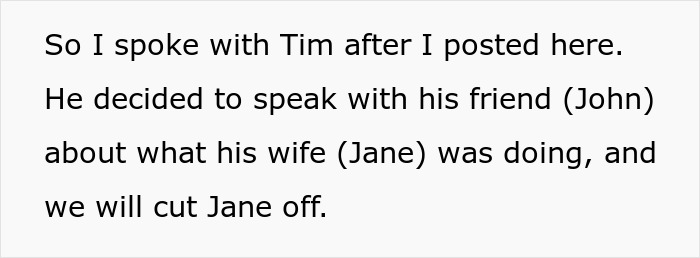
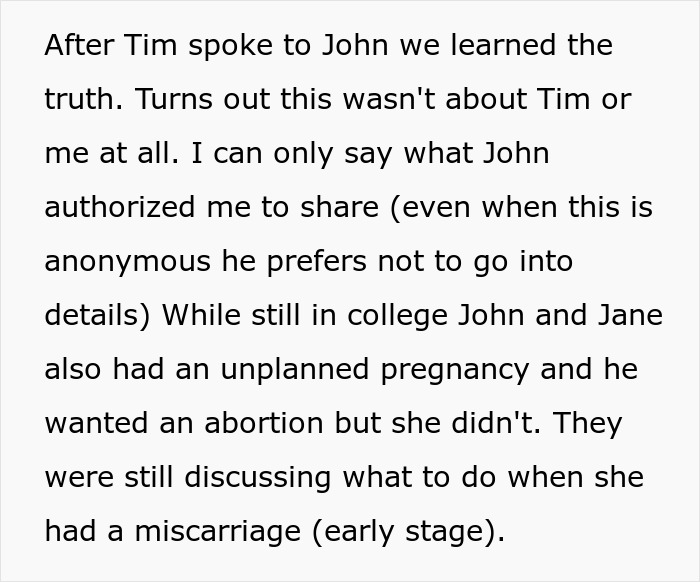
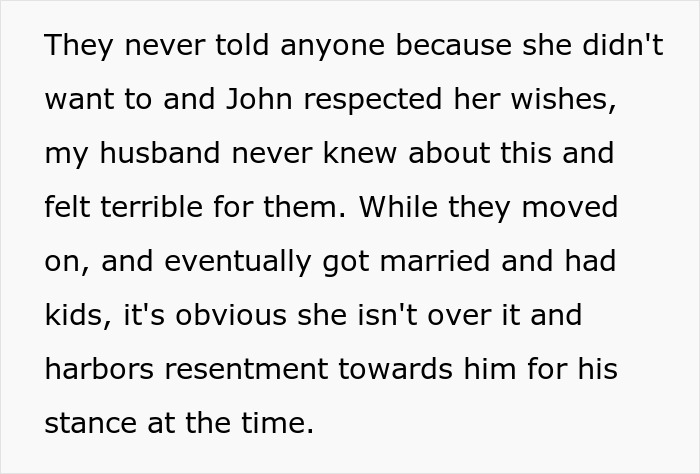
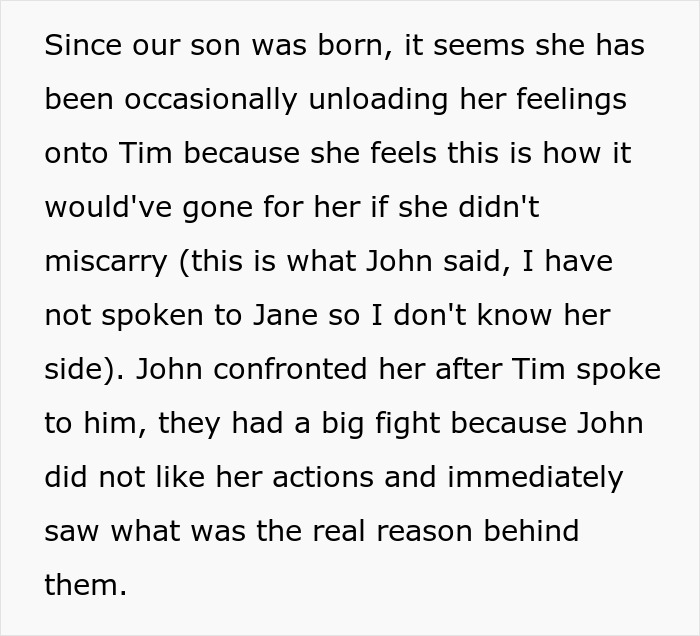
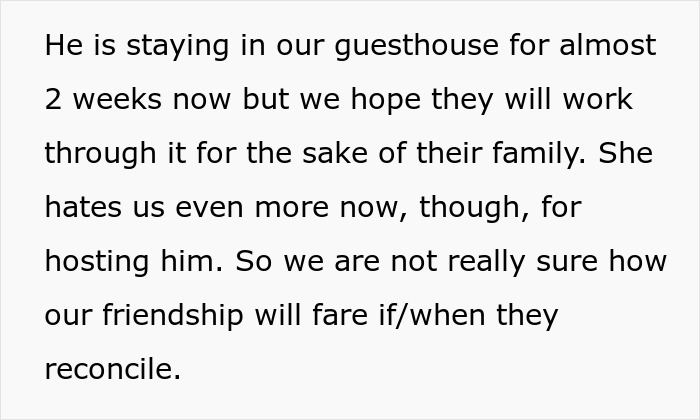

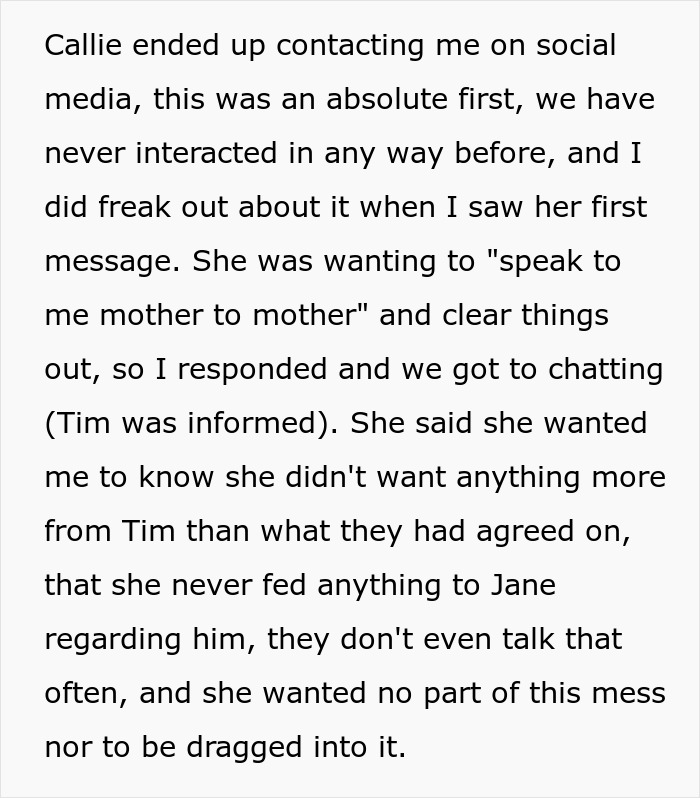


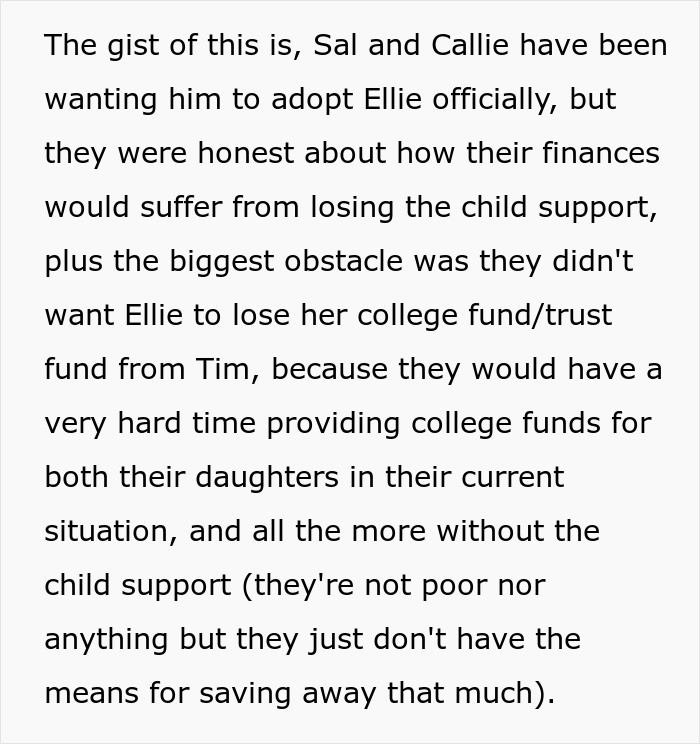

Image credits: vanenunes / Envato (not the actual photo)



Image credits: Jolly_Tooth_7274
And answered more of readers’ questions


